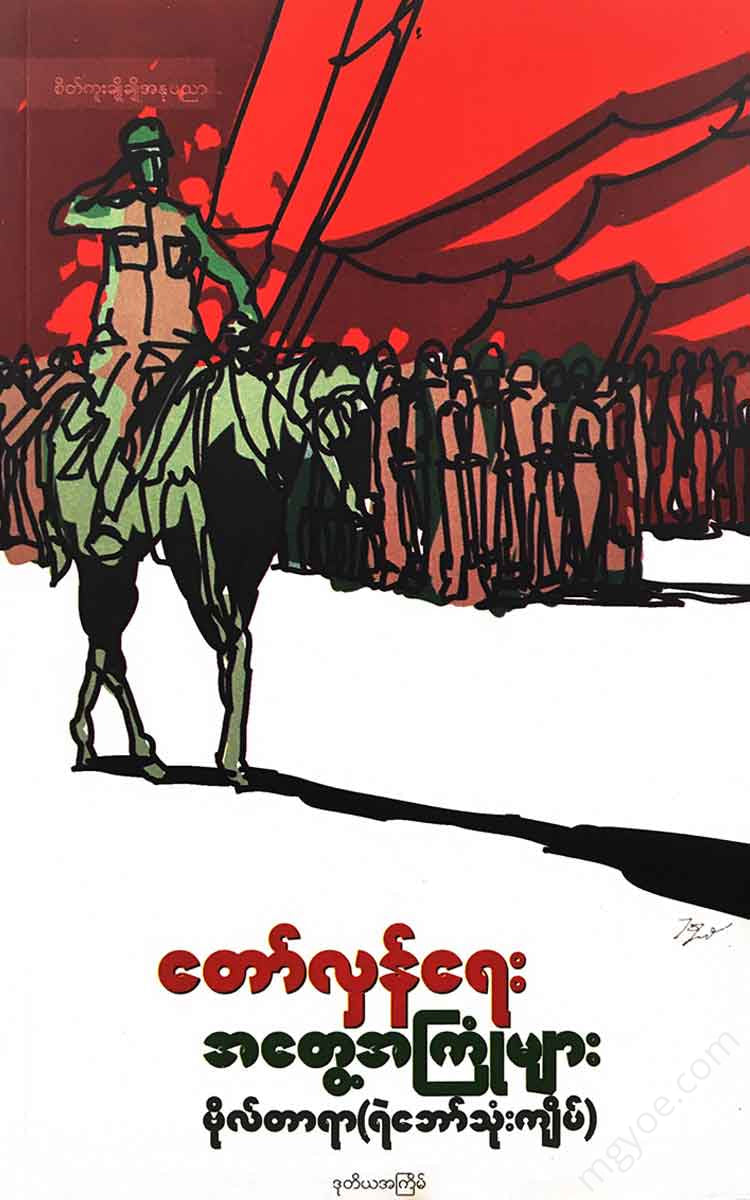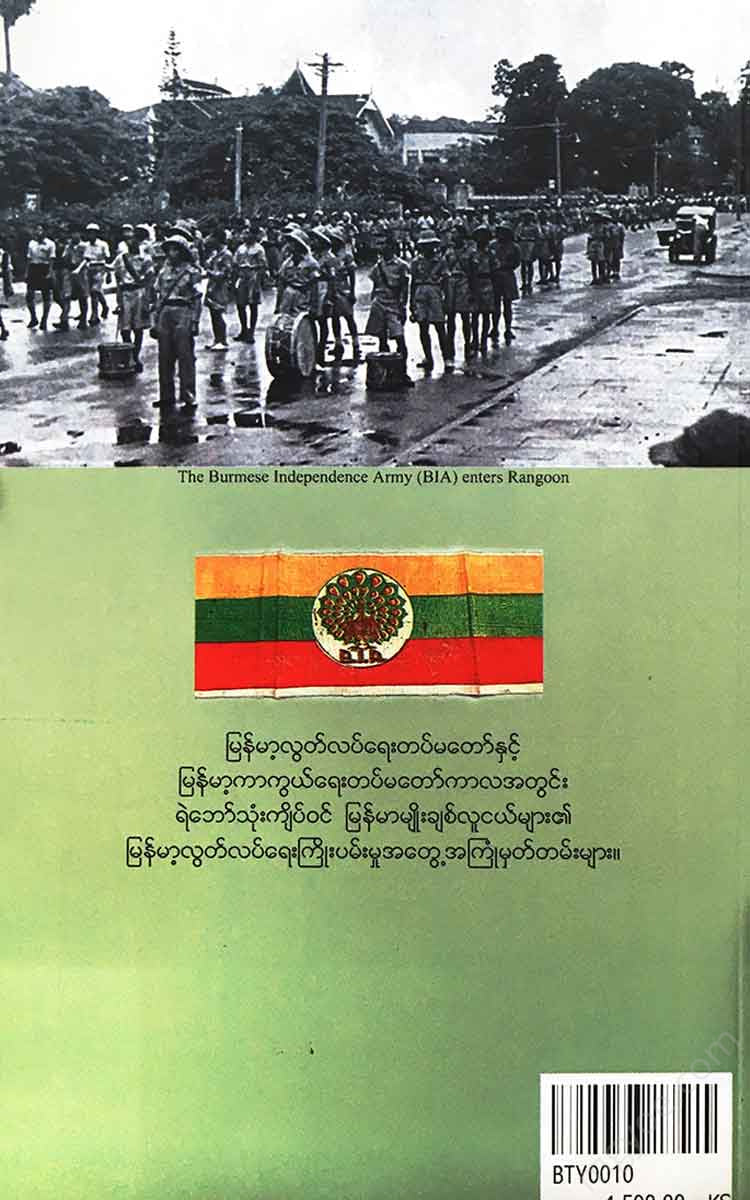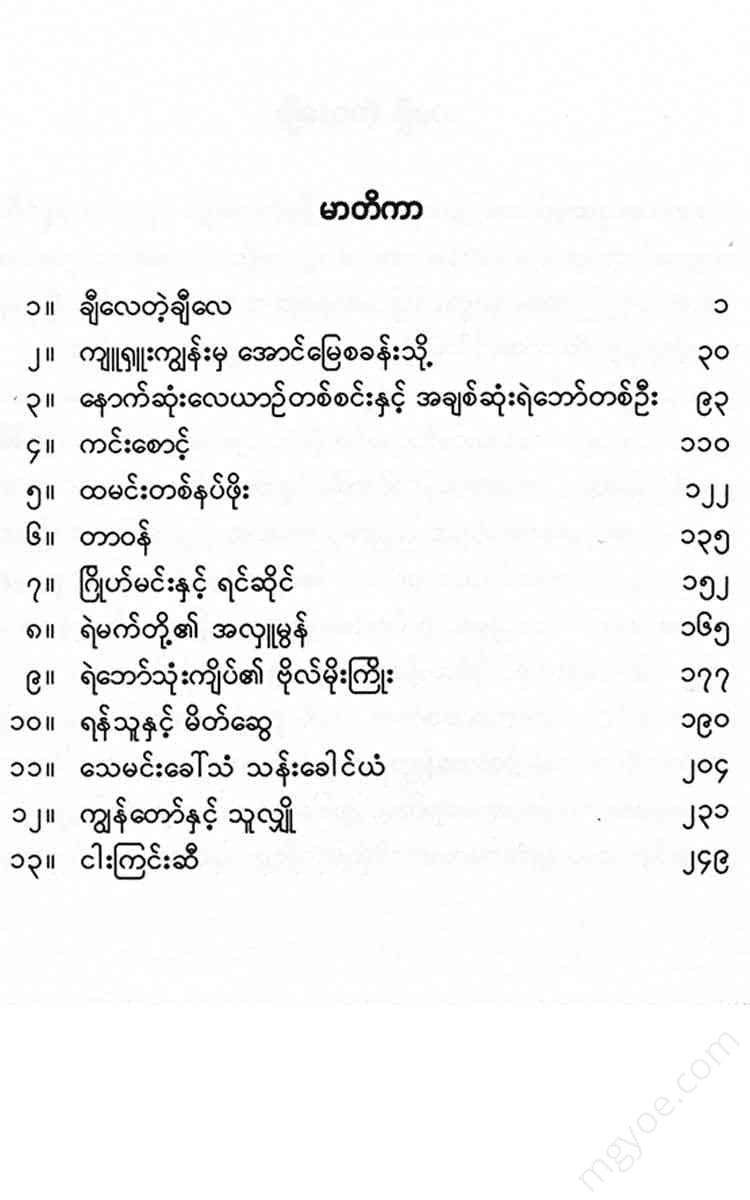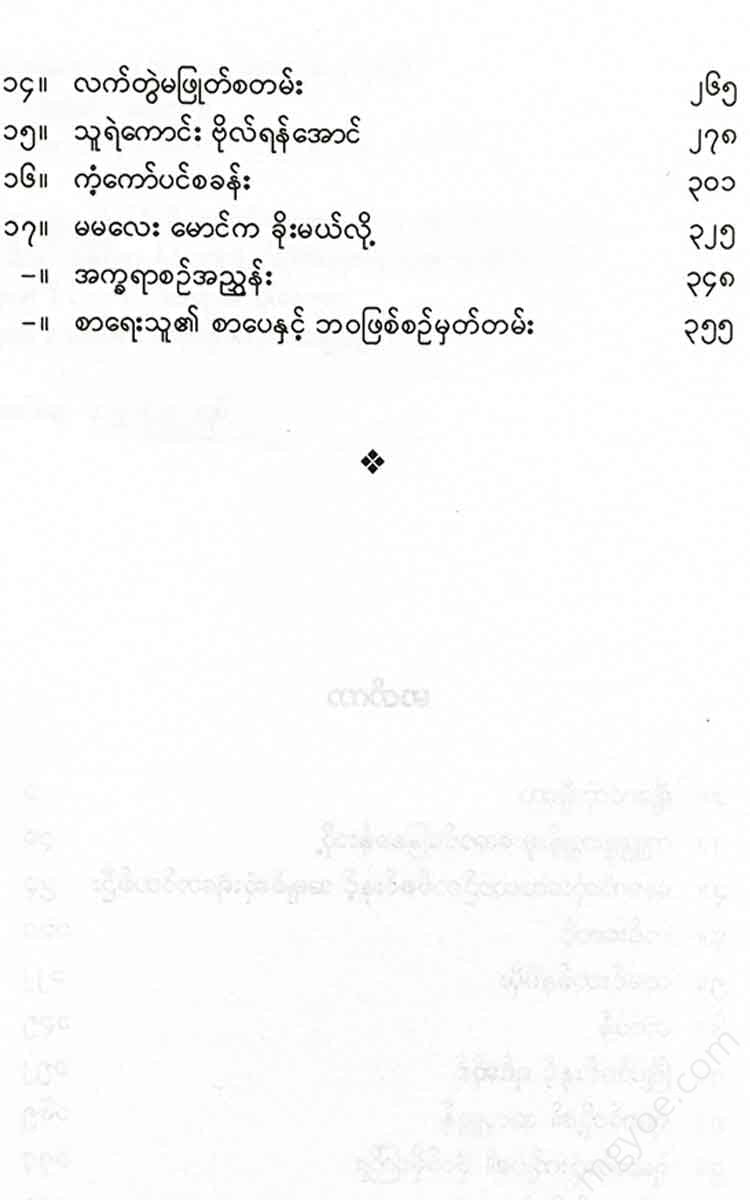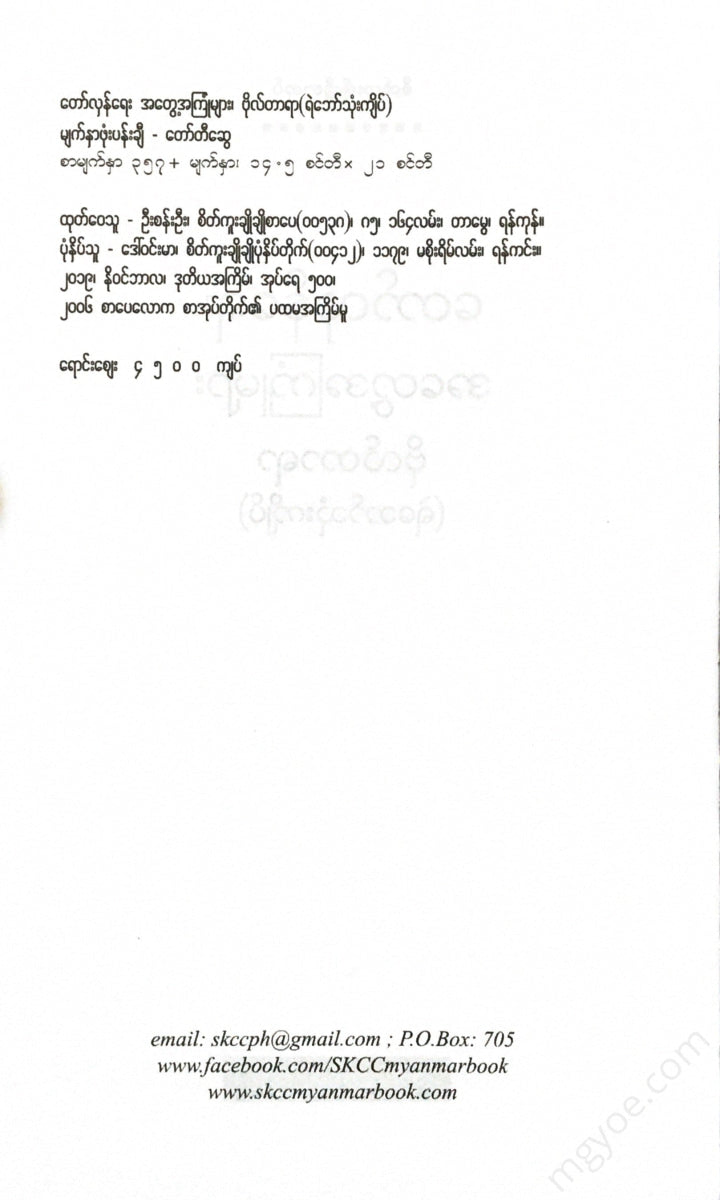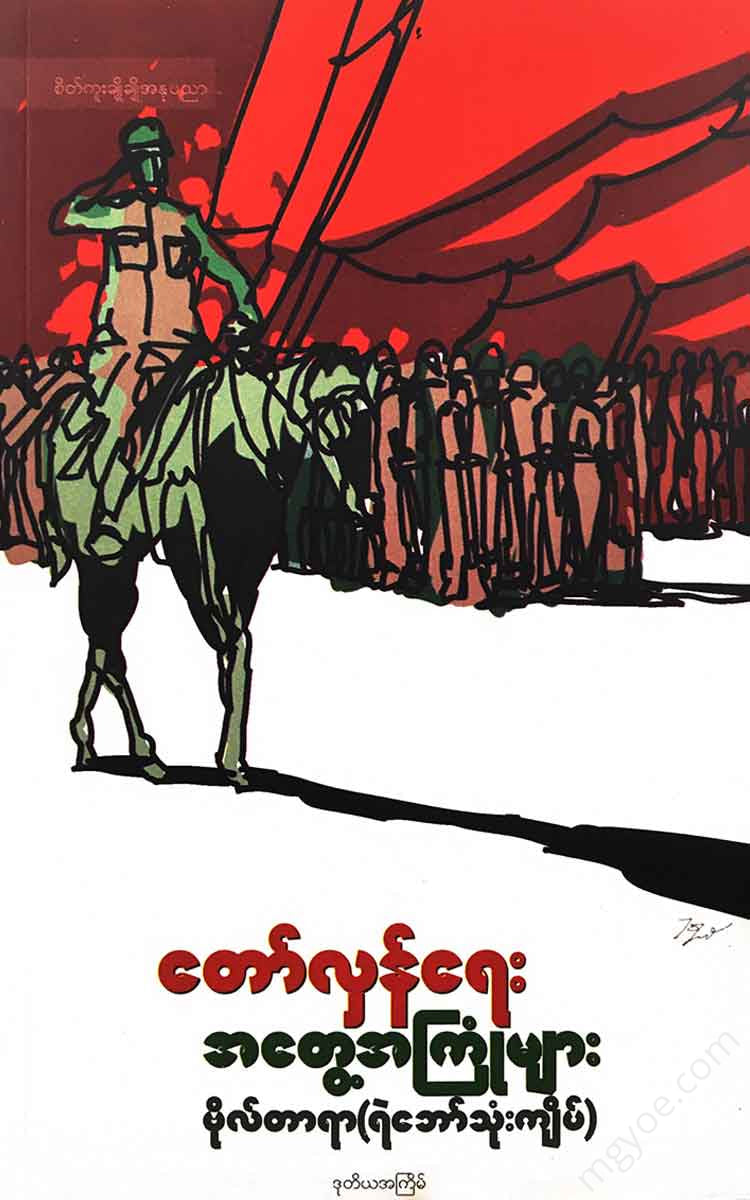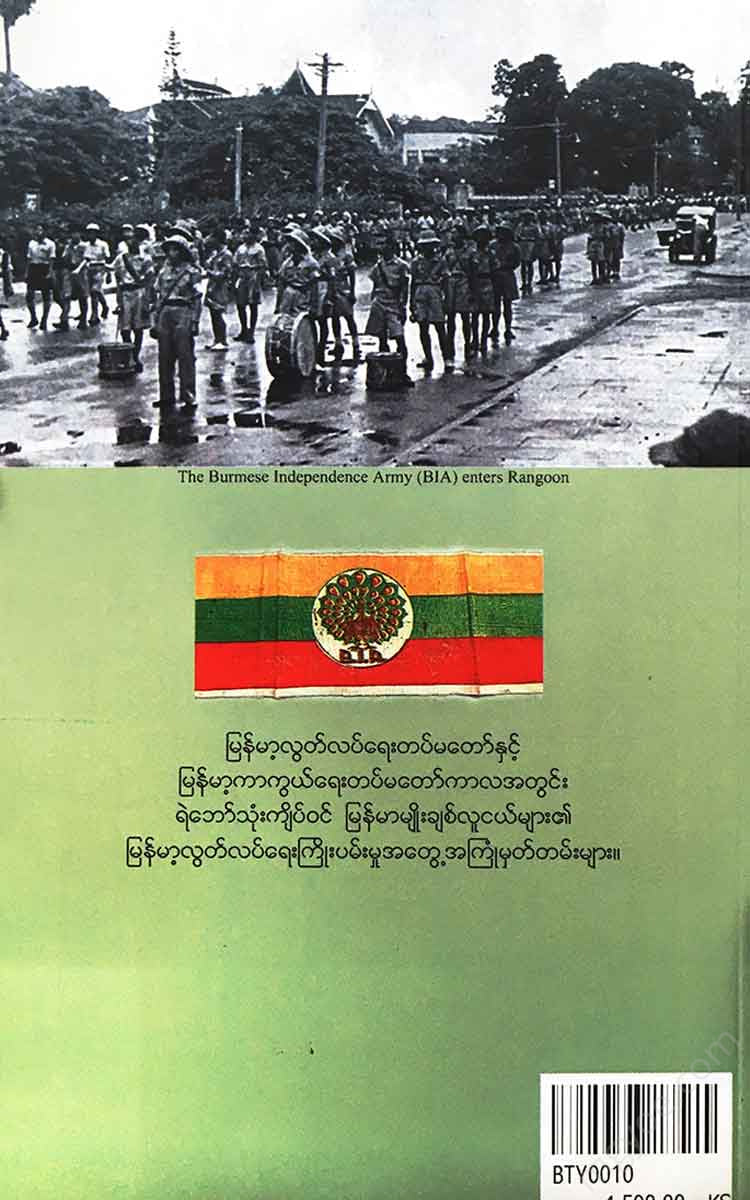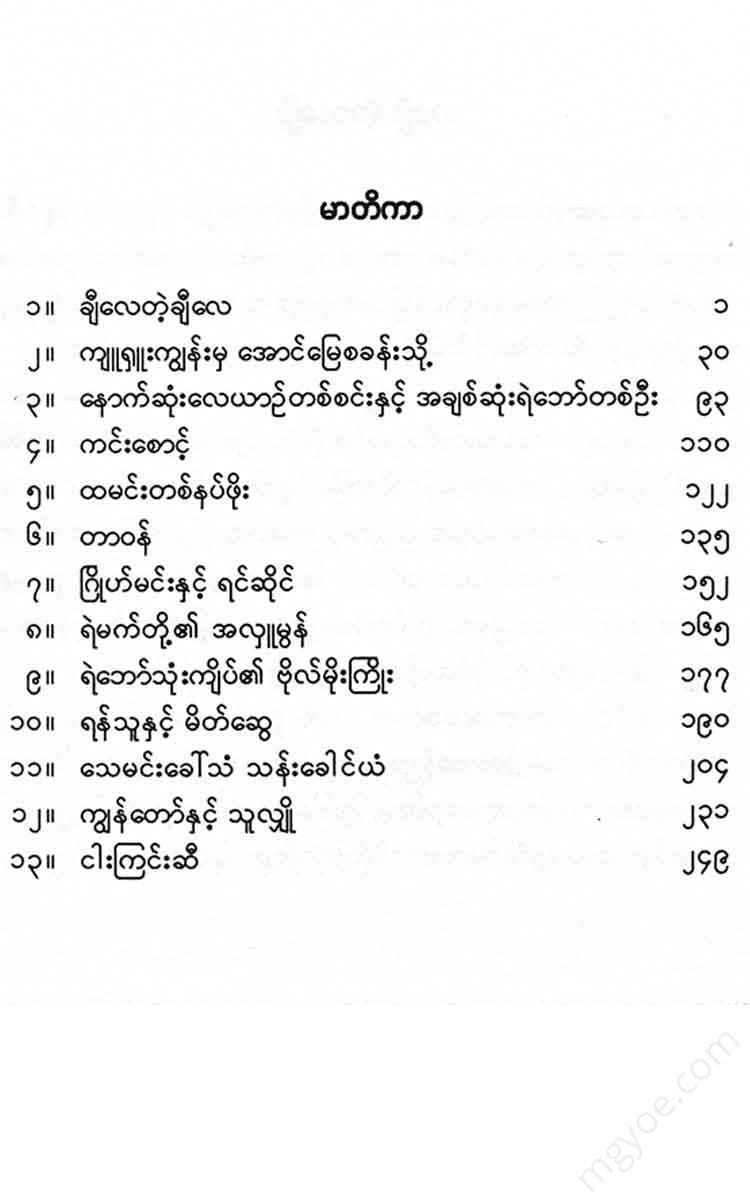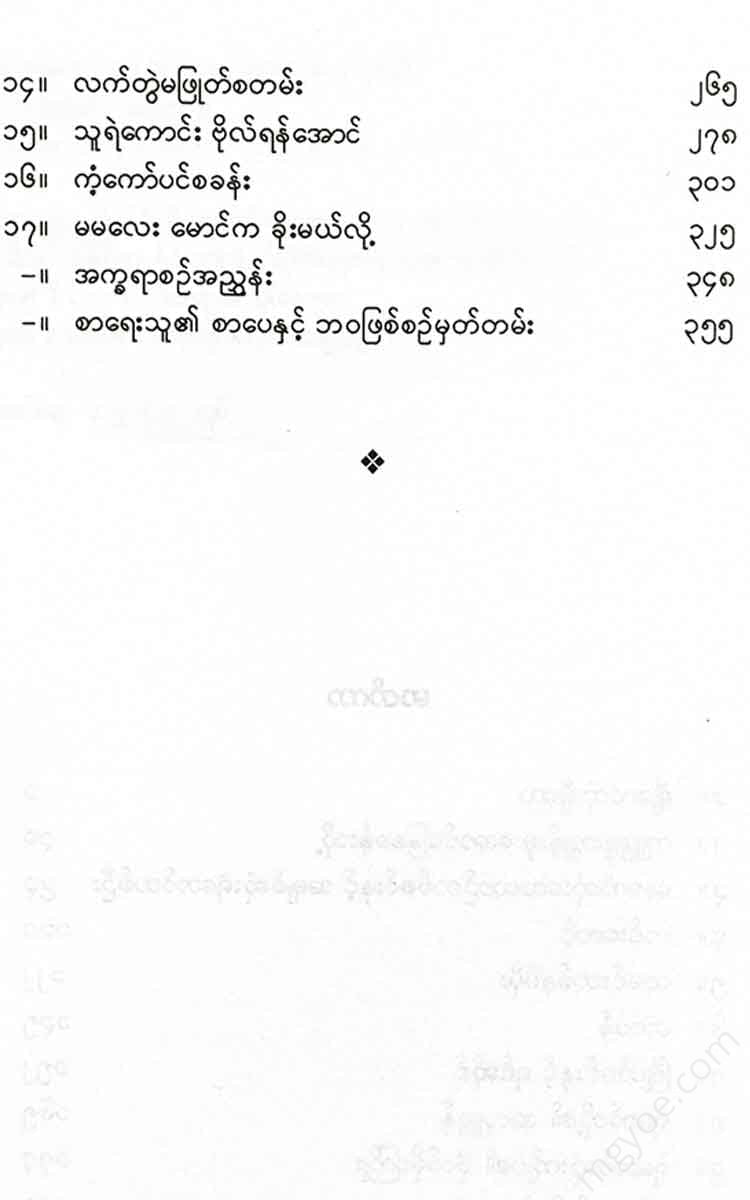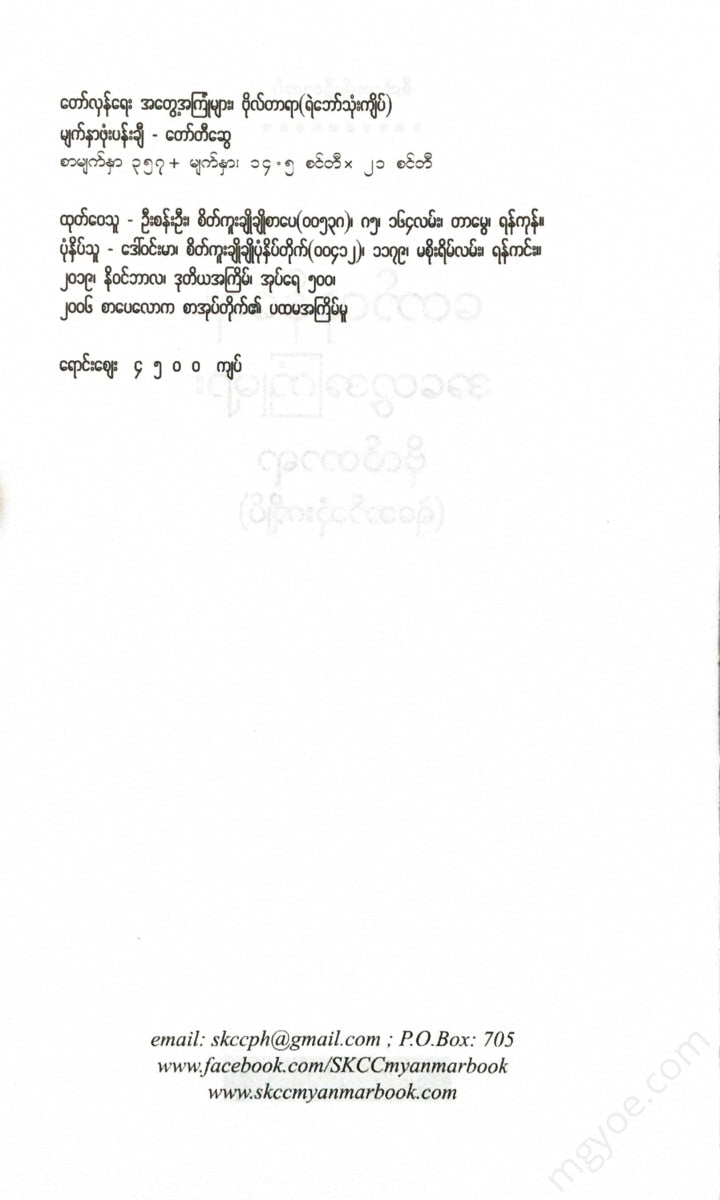စိတ်ကူးချိုချိုစာပေ
Bo Tara (Comrade Three) - Revolutionary Experiences
Bo Tara (Comrade Three) - Revolutionary Experiences
Couldn't load pickup availability
From nightfall until dawn, the loud cries of Chinese farmers on Hainan Island, “Woo Woo Ta Hey Hey,” can be heard scaring away wild animals that enter and eat their crops. In fact, the natural areas of Hainan Island, which resemble a tropical region in Upper Myanmar, are full of dry forests from Burma.
The occasional pleasant sound of the hawk and the roar of the hawks in the reeds and the snarls in the bamboo forest, suddenly reminded our comrades of Burma. From the gestures and words of the Chinese children who came to the camp kitchen to help and share the leftovers, I have noticed that there are hawks, pigs and even leopards in the Hainan Island jungle. The place where our thirty Burmese comrades have opened a training school is located within ten miles of the Japanese naval base, so it can be said that it is not yet a jungle. Apart from grasslands, reed beds, fields and a few small trees around our camp, there is no jungle or mountain. To the north and west of our camp are mountains, Not only were the forests clearly visible, but every night I noticed that the Japanese naval forces stationed in those mountain camps were walking to the base naval headquarters and sending out signals with flashlights. Our teachers, unbeknownst to a group of Japanese sergeants, investigated the situation on Hainan Island and the attitudes of the Japanese naval forces stationed on the mountain ranges, and learned the following.
Although Hainan Island is a Japanese-occupied island, the Japanese navy has not yet been able to properly govern the island. Some areas from the center of the island are still in the hands of Chinese guerrillas. The Japanese navy, which has been advancing on the territory and carrying out the task of clearing the area, has been fighting with Chinese guerrillas in successive waves. The Chinese army in Jintang has been transporting Chinese guerrillas from Hainan Island through the strait, which is only twenty miles away from where we are stationed, and the Chinese army has been secretly docking at this island at night with large Chinese sailing ships called "Jiang" and supplying them with weapons. Because of this, the Japanese navy has been attacking and sinking warships in the sea and along the strait day and night. The Japanese naval forces, which had taken up good positions on the mountain ranges, were gradually deploying their forces around the central area of the island, surrounding it layer by layer, and wiping out the Chinese guerrillas.
Around the center of Hainan Island, between the coconut palms and the sandy beaches, there were very dark forests and wild animals. There were no roads to travel through, and the number of villagers was very small, making it very difficult to eliminate the guerrillas. Since the Chinese guerrillas often attacked the Japanese naval bases in ambush, we understood that the signal lights from the Japanese naval bases scattered across the hills, which were clearly visible from our camp, were reporting the enemy's situation every hour.
The Japanese troops who occupied Hainan Island also oppressed the Chinese islanders so brutally that they could not raise their heads. They did not give the Chinese islanders even the slightest preferential treatment in terms of economy, social relations, and living conditions. For example, when it comes to the social relations issue, the Japanese ruled the Chinese islanders like a dictator and ordered them from above. If a group of Chinese tourists saw a Japanese soldier walking by, all the Chinese would stop at their places and wait for the Japanese soldier to come. When they came near a Japanese soldier who was considered a sun god, the Chinese would take off their hats and bow their heads and salute. This was not the case with the Japanese soldiers, but with every Japanese military vehicle that they saw. In my experience, I did not see a single Chinese person pretending not to know the Japanese and leaving without saluting. The signs of fear, trembling, and anxiety were clearly visible on the faces of the Chinese.
There was not a single Chinese shop in the residential and commercial areas. There were only large shops with the names of Japanese merchants in large letters, such as Ramamoto Syndicate and Tokyo Store, and the Japanese sun emblem, which were open in large numbers. The wealthy Chinese merchants, who were not far from the city, hid in the small villages, and kept their heads down, avoiding the iron hooves of the Japanese fascists. However, the Japanese kenpai teams, which were as good as hunting dogs that could track down the scent of a rabbit and chased the Chinese rich people to their hiding places, did not let them go. Later, from well-located camps, they began to extort money from the Chinese guerrillas on the pretext of providing them with weapons and money, and communicating with them.
The beautiful wives and young children of the Chinese rich people not only fell into a life of misery by falling prey to the Japanese imperialists, but also ended up as goddesses in the palace of the Japanese army on Hainan Island. As far as I understand, only the Chinese rich people who could tolerate the Japanese military authorities and pay a lot of money were able to escape from the iron hooves of the Japanese imperialists. It was like they could breathe a little.
The Japanese, the owners of the islands, seem to have assumed that after treating the Chinese islanders so harshly, oppressing and oppressing them from all sides, the Chinese would never be able to stand up and raise their heads. This was the great mistake of the Japanese.
It was a big deal. The oppressed Chinese rich people, on the one hand, supported and protected the Japanese camp, and on the other hand, they provided financial support to the Chinese guerrilla forces on the island, and they delivered news to important Japanese military bases, and the Japanese troops were often attacked by the Chinese guerrillas.
The Chinese islanders on Hainan Island are just beginning to demonstrate that the motto, "If you press too hard, you will rise; if you touch too hard, you will rise," is true.
***
I have a desire to explore the interior of Hainan Island firsthand.
A piece of news that fulfilled that wish soon reached the ears of our thirty comrades.
The news from the training instructors was, “We all have to do long marching exercises.” The teachers’ advance warning was right. The next morning, after the training, all the Burmese military students and Japanese military students were ordered to line up in front of the principal’s office, Kawashima, and stand ready.
Military school principal, teacher, assistant teacher, assistant principal
